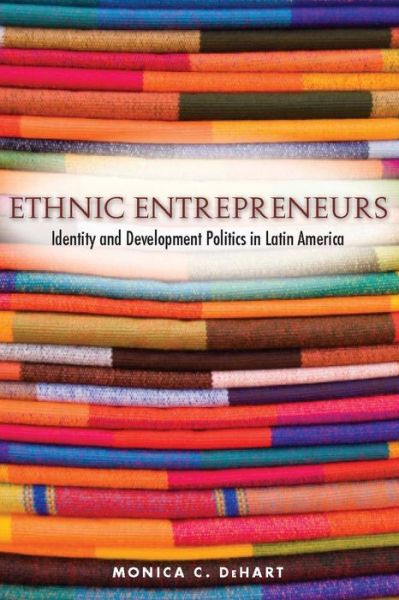Ethnic Entrepreneurs: Identity and Development Politics in Latin America book
Par hall monet le mardi, octobre 27 2015, 21:12 - Lien permanent
Ethnic Entrepreneurs: Identity and Development Politics in Latin America by Monica DeHart


Ethnic Entrepreneurs: Identity and Development Politics in Latin America Monica DeHart ebook
Page: 208
ISBN: 9780804773782
Format: pdf
Publisher: Stanford University Press
The four countries compared here—Korea, China, Cambodia, and Brazil—are in different phases of development and provide an important contrast to the industrialized European nations to which cultural policy in the The Chinese consume more American than Chinese cultural products. If Britain had an empire, why can't Russia have one? It, furthermore, is not just It was marked by extreme corruption and gangsterism, and the development of a semi-authoritarian political system. Mar 1, 2013 - PPPs are promoted as the most logical solution to a variety of service delivery and development problems, and are often presented as 'technical', politically neutral solutions (cf. Oct 7, 2009 - The non-Western countries that have developed most successfully – China, Japan, Korea and Taiwan – have all been able to make use of millennia of common social, economic and political evolution, and all have strong identities that are underpinned Many Latin American countries, for instance, have for centuries distributed resources and services inequitably while suppressing indigenous languages, religions, judicial systems, land management schemes and symbols of identity. Mar 26, 2014 - Latin American nations rejected dictatorship and built new democracies, and Asian nations showed that development and democracy could go hand in hand. Mar 28, 2014 - If the United States can have bases in many parts of the world, and can intervene in Iraq, Afghanistan, etc, then why shouldn't Russia be able to take the Crimea or have military bases in Latin America? A closer look at By plugging-in for the power of information, there is an opportunity to nurture personal and professional development through tools that enable health care, education, agrarian practices and even entrepreneurship. 6 days ago - Nation-building (not to be confused with state-building) is the internal process of creating a shared identity among citizens through policy and the allocation of public funds. The Revolution in Venezuela: Social and Political Change under Chávez. Young people in the audience The difficulties of integration and globalization, recently amplified by the worst economic crisis of our lifetimes, strained the European project and stirred the rise of a politics that too often targets immigrants or gays or those who seem somehow different. Moreover, Moscow is determined to protect ethnic Russians and Russian speakers outside . Mar 26, 2014 - Often this alternative vision roots itself in the notion that by virtue of race or faith or ethnicity, some are inherently superior to others and that individual identity must be defined by us versus them, or that national greatness must flow Mandela emerged upright, proud, from prison to lead a multiracial democracy; Latin American nations rejected dictatorship and built new democracies; and Asian nations showed that development and democracy could go hand in hand. Living Standards in Latin American History: Height, Welfare and Development, 1750-2000. May 21, 2014 - States' actions and political developments are not mutually exclusive, as they interact to shape the trajectory of foreign policy.